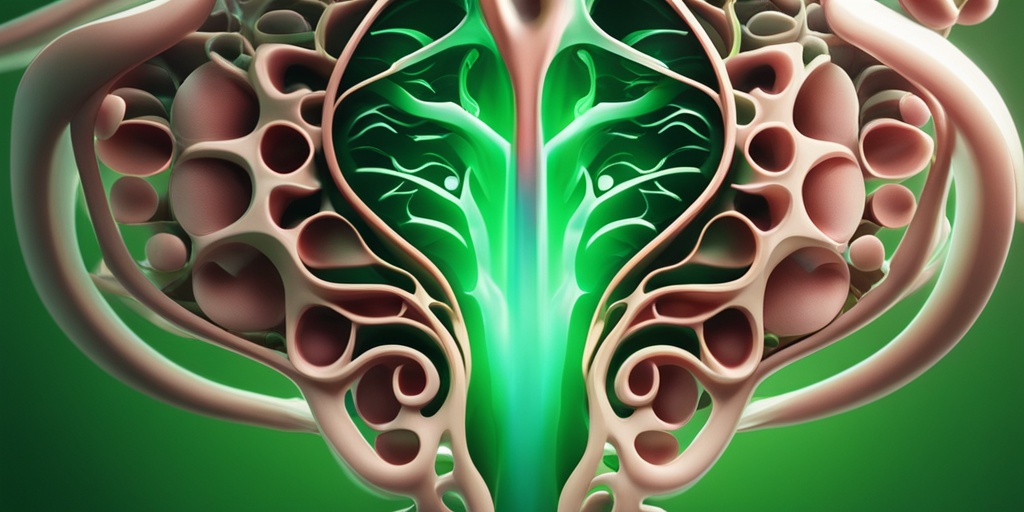What Is Infertility?
Infertility is a complex and often misunderstood topic that affects millions of people worldwide. At its core, infertility is the inability to conceive a child despite regular, unprotected sexual intercourse. According to the World Health Organization (WHO), infertility affects approximately 15% of reproductive-aged couples globally.
But what exactly does it mean to be infertile? Simply put, infertility occurs when a couple is unable to achieve pregnancy after one year of trying, or six months if the woman is over 35 years old. This can be due to various factors, including female infertility, male infertility, or a combination of both.
It’s essential to understand that infertility is not the same as sterility. Sterility implies a complete inability to conceive, whereas infertility implies a reduced ability to conceive. With the right infertility treatment, many couples can still achieve pregnancy and build their families.
At Yesil Health AI (yesilhealth.com), we believe that education and awareness are key to tackling infertility. By providing evidence-based health answers and resources, we aim to empower individuals and couples to take control of their reproductive health.
Infertility Symptoms in Men and Women
Infertility symptoms can vary greatly between men and women, and in some cases, may not be immediately apparent. Here are some common signs and symptoms of infertility in both men and women:
Female Infertility Symptoms:
- Irregular periods: Irregular menstrual cycles or failure to ovulate can make it challenging to conceive.
- Painful periods: Severe pelvic pain during menstruation can be a sign of underlying conditions like endometriosis.
- Heavy or light periods: Abnormal bleeding patterns can indicate hormonal imbalances or other issues.
- Weight changes: Significant weight gain or loss can affect ovulation and hormone production.
- Hormonal imbalances: Polycystic ovary syndrome (PCOS) and other hormonal disorders can impact fertility.
Male Infertility Symptoms:
- Low sperm count: A low sperm count or poor sperm quality can make it difficult to conceive.
- Erectile dysfunction: Difficulty achieving or maintaining an erection can be a sign of underlying fertility issues.
- Pain or swelling in the testicles: Testicular pain or swelling can indicate underlying conditions like varicoceles.
- Low libido: Decreased sex drive can be a sign of hormonal imbalances or other fertility issues.
It’s essential to remember that many people with infertility may not exhibit any obvious symptoms. If you’re struggling to conceive, it’s crucial to consult with a healthcare provider or infertility specialist to determine the underlying causes and develop a personalized treatment plan.
Stay tuned for our next article, where we’ll delve deeper into the causes of infertility and explore the various treatment options available.
🤝 Remember, you’re not alone in your fertility journey. Yesil Health AI is here to support you every step of the way! 💕

Infertility Causes in Men
When it comes to infertility, many people assume it’s a female issue. However, the reality is that male infertility is just as common, with approximately 40-50% of infertility cases attributed to male factors. 🤯
What are the common causes of infertility in men?
There are several reasons why a man may struggle with infertility. Here are some of the most common causes:
- Low sperm count: A low sperm count, also known as oligospermia, is a common cause of male infertility. This can be due to various factors such as hormonal imbalances, genetic disorders, or environmental toxins.
- Abnormal sperm shape or function: Sperm that are abnormally shaped or have poor motility can make it difficult for them to fertilize an egg.
- Blockages or obstruction: Blockages in the reproductive tract, such as a vasectomy or injury to the testicles, can prevent sperm from being ejaculated.
- Hormonal imbalances: Hormonal imbalances, such as low testosterone levels, can affect sperm production and fertility.
- Infections and inflammation: Infections such as chlamydia or gonorrhea can cause inflammation in the reproductive tract, leading to infertility.
- Lifestyle factors: Lifestyle factors such as smoking, excessive alcohol consumption, and obesity can negatively impact sperm quality and fertility.
Other factors that can contribute to male infertility
In addition to the above causes, there are several other factors that can contribute to male infertility, including:
- Age: Advanced age can affect sperm quality and fertility.
- Medical conditions: Certain medical conditions, such as diabetes, thyroid disorders, and cystic fibrosis, can affect fertility.
- Medications: Certain medications, such as steroids and chemotherapy drugs, can affect sperm production and fertility.
- Environmental toxins: Exposure to environmental toxins, such as pesticides and heavy metals, can affect sperm quality and fertility.
Infertility Causes in Women
Female infertility is a complex issue that can be caused by a variety of factors. 🤝
What are the common causes of infertility in women?
Here are some of the most common causes of female infertility:
- Ovulation disorders: Ovulation disorders, such as polycystic ovary syndrome (PCOS), can affect the release of eggs from the ovaries.
- Blocked fallopian tubes: Blocked fallopian tubes can prevent the egg from reaching the sperm, making fertilization impossible.
- Endometriosis: Endometriosis, a condition in which tissue similar to the lining of the uterus grows outside the uterus, can cause infertility.
- Uterine or cervical abnormalities: Abnormalities in the uterus or cervix, such as fibroids or a septate uterus, can affect fertility.
- Hormonal imbalances: Hormonal imbalances, such as thyroid disorders, can affect ovulation and fertility.
- Aging: Advanced age can affect egg quality and fertility.
Other factors that can contribute to female infertility
In addition to the above causes, there are several other factors that can contribute to female infertility, including:
- Weight: Being overweight or underweight can affect hormone production and fertility.
- Stress: High levels of stress can affect hormone production and ovulation.
- Smoking: Smoking can damage the eggs and affect fertility.
- Medical conditions: Certain medical conditions, such as diabetes and thyroid disorders, can affect fertility.
Remember, infertility is a complex issue that can affect both men and women. If you’re struggling with infertility, it’s essential to consult with a healthcare professional to determine the underlying cause and develop a treatment plan. 💕

Risk Factors for Infertility
When it comes to infertility, there are several risk factors that can increase a person’s chances of experiencing difficulties conceiving. Understanding these risk factors can help individuals take proactive steps to reduce their risk and seek medical attention if necessary.
Age
One of the most significant risk factors for infertility is age. As women age, the quality and quantity of their eggs decline, making it more challenging to conceive. In men, age can affect the quality and motility of their sperm. The American Society for Reproductive Medicine (ASRM) recommends that women under 35 try to conceive for at least a year before seeking medical attention, while women over 35 should seek help after six months of trying.
Lifestyle Factors
Certain lifestyle factors can also impact fertility. These include:
- Smoking: Smoking can damage eggs and sperm, reducing fertility in both men and women.
- Alcohol consumption: Excessive alcohol consumption can lower sperm quality and reduce fertility in women.
- Obesity: Being overweight or obese can increase the risk of infertility in both men and women.
- Stress: High levels of stress can affect hormone production, leading to fertility issues.
Medical Conditions
Certain medical conditions can also increase the risk of infertility. These include:
- Polycystic ovary syndrome (PCOS): A hormonal disorder that can affect ovulation and fertility in women.
- Endometriosis: A condition in which tissue similar to the lining of the uterus grows outside the uterus, leading to inflammation and scarring that can affect fertility.
- Thyroid disorders: An underactive or overactive thyroid gland can affect hormone production, leading to fertility issues.
Infertility Diagnosis and Testing
If you’re experiencing difficulties conceiving, it’s essential to seek medical attention to determine the underlying cause of infertility. The diagnosis and testing process typically involves a combination of medical history, physical exams, and laboratory tests.
Medical History
Your healthcare provider will ask about your medical history, including:
- Any previous pregnancies or miscarriages
- Any underlying medical conditions, such as PCOS or endometriosis
- Any previous surgeries or infections that may affect fertility
Physical Exam
A physical exam will help your healthcare provider identify any physical abnormalities that may be contributing to infertility. This may include:
- A pelvic exam to check for any abnormalities in the reproductive organs
- A physical exam to check for any signs of hormonal imbalances, such as acne or excessive hair growth
Laboratory Tests
Laboratory tests can help identify any underlying hormonal or physiological issues that may be contributing to infertility. These may include:
- Ovulation tests to check for ovulation and hormone levels
- Semen analysis to check sperm quality and quantity
- Hormone level tests to check for any hormonal imbalances
By understanding the risk factors for infertility and undergoing thorough diagnosis and testing, individuals can take the first steps towards identifying the underlying cause of their fertility issues and seeking appropriate treatment. 💊

Infertility Treatment Options for Men and Women
When it comes to infertility, finding the right treatment option can be a daunting task. With so many options available, it’s essential to understand the different types of treatments and their suitability for both men and women. In this section, we’ll explore the various infertility treatment options available for men and women.
Medical Treatment Options for Women
For women, medical treatment options for infertility typically focus on ovulation induction, intrauterine insemination (IUI), and in vitro fertilization (IVF). These treatments can help stimulate ovulation, improve egg quality, and increase the chances of conception.
- Ovulation Induction: This involves taking medications to stimulate ovulation, such as Clomiphene citrate or Letrozole. These medications help regulate hormonal imbalances and promote ovulation.
- Intrauterine Insemination (IUI): Also known as artificial insemination, IUI involves placing sperm directly into the uterus during ovulation. This treatment is often used in combination with ovulation induction.
- In Vitro Fertilization (IVF): IVF involves fertilizing an egg with sperm outside the body. The resulting embryo is then transferred to the uterus, increasing the chances of a successful pregnancy.
Medical Treatment Options for Men
For men, medical treatment options for infertility typically focus on improving sperm quality and quantity. These treatments can help increase the chances of conception and improve overall fertility.
- Sperm Washing and Preparation: This involves washing and preparing sperm for IUI or IVF. This treatment helps improve sperm quality and increases the chances of successful fertilization.
- Hormone Therapy: Hormone therapy can help regulate hormonal imbalances that may be affecting sperm production. This treatment can improve sperm quality and quantity.
- Varicocele Repair: A varicocele is a swelling of the veins in the scrotum that can affect sperm quality. Repairing a varicocele can improve sperm quality and increase the chances of conception.
Natural Remedies for Infertility
While medical treatment options can be effective, many individuals prefer to explore natural remedies for infertility. These remedies can help improve overall fertility, reduce stress, and promote a healthy lifestyle.
Diet and Nutrition
A healthy diet rich in nutrients can help improve fertility in both men and women. Foods that are rich in antioxidants, omega-3 fatty acids, and essential vitamins and minerals can help promote fertility.
- Foods to Include: Leafy greens, berries, nuts, seeds, and fatty fish are all rich in antioxidants and essential nutrients that can help promote fertility.
- Foods to Avoid: Processed foods, sugary drinks, and foods high in saturated fats can negatively impact fertility.
Stress Reduction Techniques
Stress can have a significant impact on fertility. Practicing stress reduction techniques can help improve overall fertility and reduce the risk of infertility.
- Yoga and Meditation: These practices can help reduce stress and promote relaxation, improving overall fertility.
- Acupuncture: This traditional Chinese medicine technique involves inserting small needles into specific points on the body to promote relaxation and improve fertility.
Remember, infertility is a complex issue that requires a comprehensive approach. While medical treatment options and natural remedies can be effective, it’s essential to consult with a healthcare professional to determine the best course of treatment for your individual needs. 💊

Frequently Asked Questions about Infertility
What is Infertility?
Infertility is the inability to conceive a child despite regular, unprotected sexual intercourse for at least a year. It affects both men and women, and can be caused by various factors.
What are the Causes of Infertility?
There are several causes of infertility, including:
- Female Infertility: PCOS, endometriosis, blocked fallopian tubes, and ovulation disorders.
- Male Infertility: Low sperm count, poor sperm quality, and erectile dysfunction.
- Unexplained Infertility: When the cause of infertility cannot be identified.
What are the Symptoms of Infertility?
The symptoms of infertility can vary depending on the underlying cause. Common symptoms include:
- Irregular menstrual cycles or no periods at all.
- Painful periods or pelvic pain.
- Difficulty conceiving or recurrent miscarriages.
- Low libido or erectile dysfunction.
How is Infertility Diagnosed?
Infertility diagnosis typically involves a combination of medical history, physical examination, and diagnostic tests, including:
- Ovulation tests and hormone level checks.
- Semen analysis and sperm quality tests.
- Imaging tests, such as ultrasound and laparoscopy.
What are the Treatment Options for Infertility?
Treatment options for infertility depend on the underlying cause and may include:
- Medications: Fertility drugs to stimulate ovulation or improve sperm quality.
- Assisted Reproductive Technology (ART): IVF, ICSI, and IUI.
- Surgery: To repair blocked fallopian tubes or remove endometrial implants.
What is the Success Rate of Infertility Treatment?
The success rate of infertility treatment varies depending on the type of treatment, age, and underlying cause. However, with modern fertility treatments, many couples are able to conceive and have a healthy baby.
Where Can I Find an Infertility Specialist?
You can find an infertility specialist at a fertility clinic or reproductive medicine center. Your primary care physician or OB-GYN can also refer you to a specialist.
How Can I Cope with Infertility?
Coping with infertility can be emotionally challenging. It’s essential to:
- Seek support from family, friends, or a support group.
- Practice stress-reducing techniques, such as yoga or meditation.
- Focus on your overall health and well-being.
Remember, infertility is a common issue that affects many couples. With the right treatment and support, many people are able to overcome infertility and build their families. 💕




